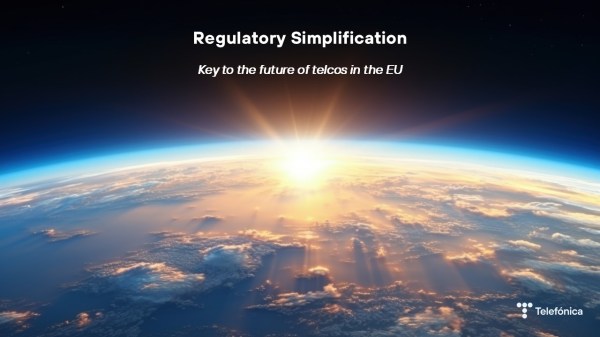 Enrique Medina
Enrique Medina
There has been a lot of media noise around so-called “net neutrality” rules after the FCC, the US telecommunications regulator, repealed the “2015 Open Internet Order” on December 15.
While there are numerous headlines arguing that “the FCC has put an end to net neutrality in the USA”, it’s not that simple. The reality is that the FCC has not suppressed net neutrality, nor has the internet finished as we know it.
Let’s go step by step.
What is actually net neutrality?
Net neutrality is a general principle mandating that all internet traffic flowing on telecommunications networks is to be managed in the same way. It aims to ensure the open nature of the internet, so that the telecommunication operators that own the networks cannot determine which services are to be used use on the internet, favouring or discriminating against some to the detriment of others.
And how is Net Neutrality guaranteed?
This principle has been preserved in different parts of the world by means of mere application of Competition Law which forbids the abuse of a dominant position. However, the 21st century witnessed the advent of new regulations in multiple forms to guarantee the principle of Net Neutrality, ranging from mere orders or guidance by the sectoral regulators to administrative regulation and also national and supranational Laws.
For example, in 2015, following an intense legislative process, the European Union passed a Net Neutrality Law which with broad institutional consensus.
The United States, regarded as the cradle of net neutrality, has followed a very different process. The impossibility of reaching a bipartisan agreement in Congress resulted in the FCC issuing non-legally binding provisions, as a first attempt to regulate the issue. In 2010, it defined the basic principles of net neutrality. Following a judicial process, it was ruled that the FCC did not have the power to oblige telecommunications operators to comply with these principles. In 2015, the FCC approved the “2015 Open Internet Order”, changing the classification of internet access services and equating them to phone calls, in order to recover its power to regulate internet access services and to force the telecommunications operators to comply with the principles of Net Neutrality.
So what has the FCC done now?
The FCC has repealed the 2015 order, returning to the previous situation. In other words, the same basic principles of net neutrality are maintained and the most important change is that the responsibility for the enforcement of said principles now falls to the Federal Trade Commission, within its remit as the competition authority.
Is the internet as we know it at risk of disappearing?
It is most unlikely. The impact of this regulatory change is limited to the USA. Its scope of application appears very limited, as it essentially means a change in the body which has the responsibility to guarantee the essential principles of net neutrality, which still remain standing.
There is no change in the European Union, as the current Regulation grants a stable framework, homogeneously applied throughout all the member States.
As for other countries and regions, India, with more than one billion inhabitants, has one of the toughest laws regarding net neutrality. In Latin America, Brazil, Peru, Chile and Argentina have their own laws. In countries with no specific rules, Competition Law continues to apply.

Does Telefónica support net neutrality? What is the company’s positioning?
Telefónica supports the general principles of net neutrality (no blocking or discriminatory degradation of traffic, freedom to connect the device of our choice to the network and transparency of network management rules for consumers and regulators).
We strive to comply with the regulations on this matter wherever they exist, in order to ensure an open and unrestricted internet, where our customers have the ability to freely choose the services and content they find interesting in conditions of comparable quality.
Nevertheless, we claim the ability to freely operate our networks so that we can guarantee their integrity and security of the communications and the management of the different types of traffic, each with different needs. It is clear that the streaming of a live football match requires different network management rules from those of a video file sent by email. Or, in the near future, the management of the data allowing an autonomous car to drive around.
What is digital neutrality?
We believe that the internet ecosystem goes far beyond the networks and that the principle of neutrality should also be applied when contemplating other fundamental elements in the value chain. This is what we call DIGITAL NEUTRALITY: It includes the devices through which we have access to Internet. Mainly smartphones and tablets, but also cars, household appliances and all kinds of devices in the near future.
Applications and services we use on the internet and in the app stores where the apps are sold should also be covered. The same demand for neutrality can also be extrapolated to other elements of the digital experience, such as search results, e-commerce platforms, social networks and so on.
The underlying debate leads us to reflect whether the internet is really a level playing field, in which we all play by the same rules. A level playing field in which equivalent services are governed by the same rules and in which all consumers are equally protected.
Conclusions
In short, in any competitive market, all participants including the network operators or the so-called “internet companies” have the incentive to offer the very best user experience and the responsibility not to abuse potential dominant positions.
If users do not get an experience according to their expectations, either because access to the digital service of their choice is blocked or degraded or because it is not transparent in terms of the value extracted from such users provide, by means of payment or data contribution, those users should be able to turn to the services of another provider which fulfils their expectations.
Operators of infrastructures and providers of digital products and services should be subject to the same standards of free competition and consumer protection, including privacy. Within this context, the abuse of a dominant position altering any link of the chain can and should be punished, without the need for additional regulation to preserve a so-called neutrality. If the neutrality principle is only limited to the network, it won’t be sufficient to protect internet users and competition in an ecosystem governed by a strange rule (from the point of view Competition Law compliance): “the winner takes it all”.








